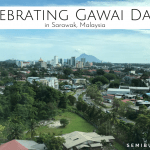Get ready to immerse yourself in the vibrant, culture-rich celebration of Gawai Dayak, a festival that brings the heart of Sarawak to life with unforgettable traditions and joyous gatherings!
As a seasoned semi-budget traveler and travel planner, I’ve had the incredible opportunity to explore cultures and festivals around the world.
One event that truly captivated me (twice!) was Gawai, the vibrant harvest festival celebrated by the Dayak people in Sarawak, Malaysia.
With years of experience in crafting unique travel experiences, I can assure you that Gawai Dayak is more than just a festival—it’s a heartwarming blend of tradition, community, and joy that every traveler should experience.
SBT Highlights
- Gawai is an annual festival celebrated on June 1 and 2.
- It includes traditional rituals, dances, and modern festivities.
- The festival represents gratitude and community unity among the Dayak people.
HI THERE! DON’T FORGET TO PIN THIS FOR LATER!
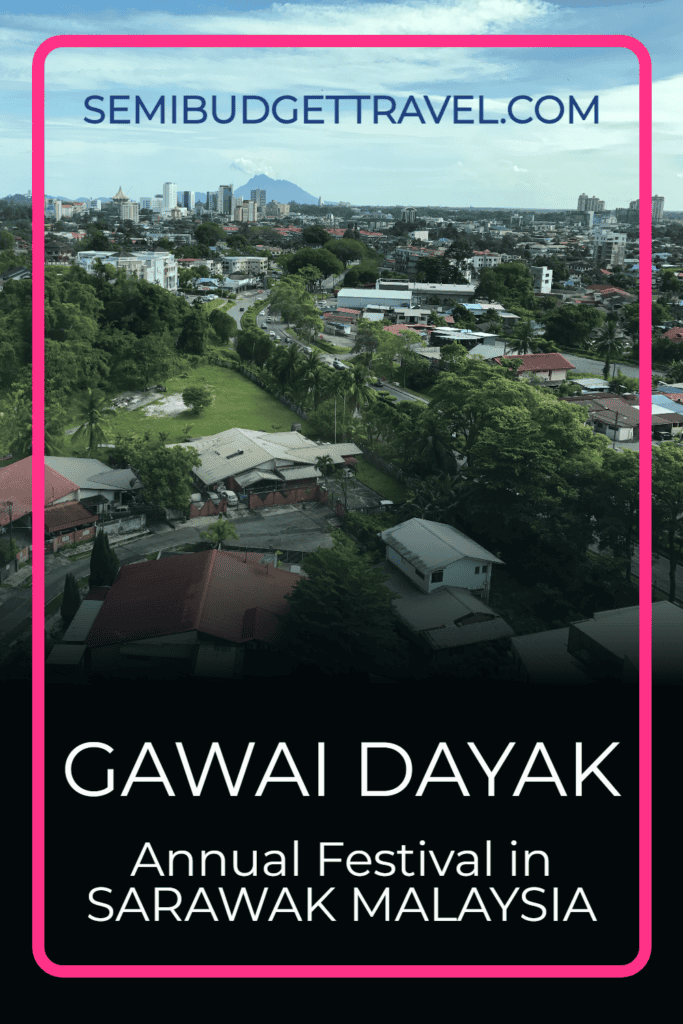
Gawai
Gawai, also known as Gawai Dayak, is an annual festival celebrated by the Dayak community in Sarawak, Malaysia, and West Kalimantan, Indonesia. You might think of it as a Thanksgiving-style event mixed with a New Year’s party.
Gawai Dayak takes place on June 1 and June 2, coinciding with the end of the harvest season. The festival is filled with traditions, elaborate ceremonies, and memorable festivities.
The festival features various rituals including the brewing of tuak, a rice wine, and traditional dances like the ngajat.
It’s not just about fun and feasting; it’s deeply rooted in expressing gratitude for the bountiful harvest.
In recent years, modern celebrations have added new flavors to the event, making it even more exciting with parades, contests, and digital events.
Exploring Gawai provides a unique cultural experience.
Whether you are visiting longhouses or joining public celebrations, you will find that the harmony and unity among the Dayak people during Hari Gawai offer a refreshing perspective on community spirit and cultural diversity.
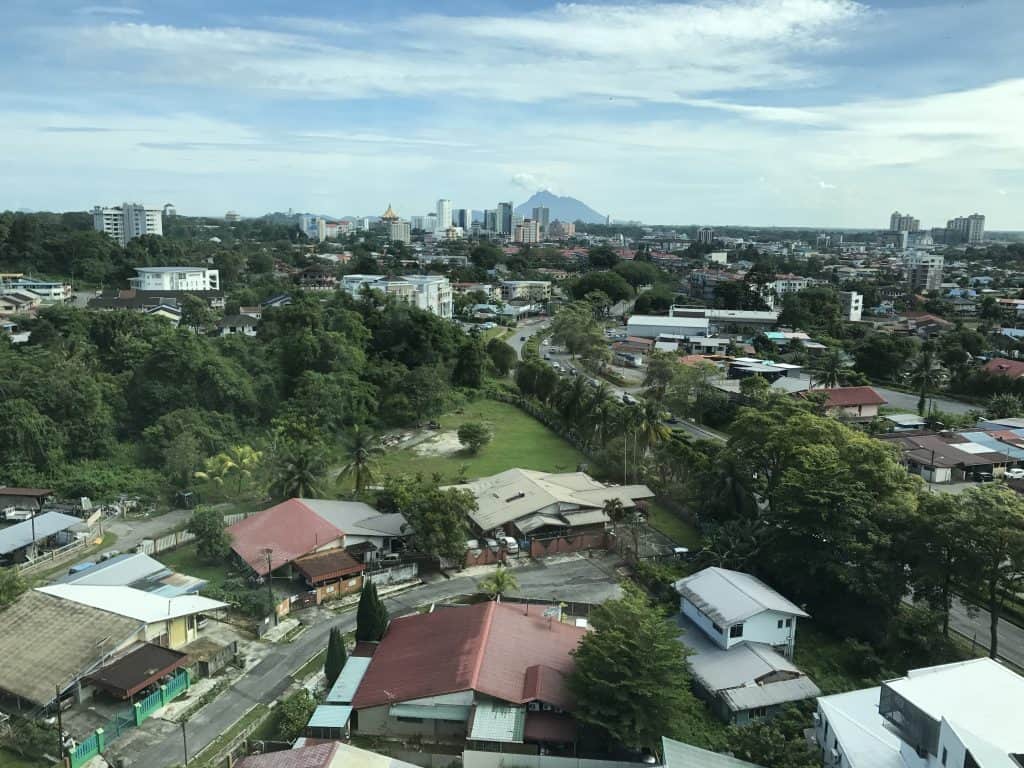
Traditions and Celebrations of Gawai
Gawai is a vibrant festival celebrated by the Dayak tribes in Sarawak to mark the end of the rice harvest season.
The festivities are filled with traditional rituals, delicious food, colorful attire, and lively performances.
Rituals and Symbolism
Gawai kicks off with Gawai Eve, where the community gathers for important traditional rituals.
The Iban community and Bidayuh people perform the Muai Antu Rua to cast away bad spirits.
The Tuai Rumah, or village head, plays a key role in these ceremonies.
You will see symbolic acts like the blessing of rice. This is to ensure a good harvest for the coming year.
These acts show gratitude for prosperity and protection.
Festive Foods and Beverages
Food and drink are central to the Gawai celebrations. Traditional delicacies are prepared using glutinous rice. One such treat is külupis, rice wrapped in leaves for a unique flavor.
Many meal ingredients are cooked inside bamboo logs, which also infuses an interesting flavor. Some of the traditional dessert foods include: sarang semut, kuih sepit, and penganan iri.
Rice wine, known as tuak, is brewed specially for the occasion.
This drink, alongside other traditional foods, is used not only to feast but also to welcome guests warmly.
Attire and Performances
You can expect to see beautiful traditional costumes during Gawai. The Dayak tribes, especially the Iban and Bidayuh people, dress in intricate attire with beadwork.
Traditional dances and music make the festival lively.
Performances are a joyful mix of traditional music and dances that tell stories of their rich heritage.
These elements turn Gawai into a time of merrymaking and cultural celebration, embodying the spirit of unity and joy.
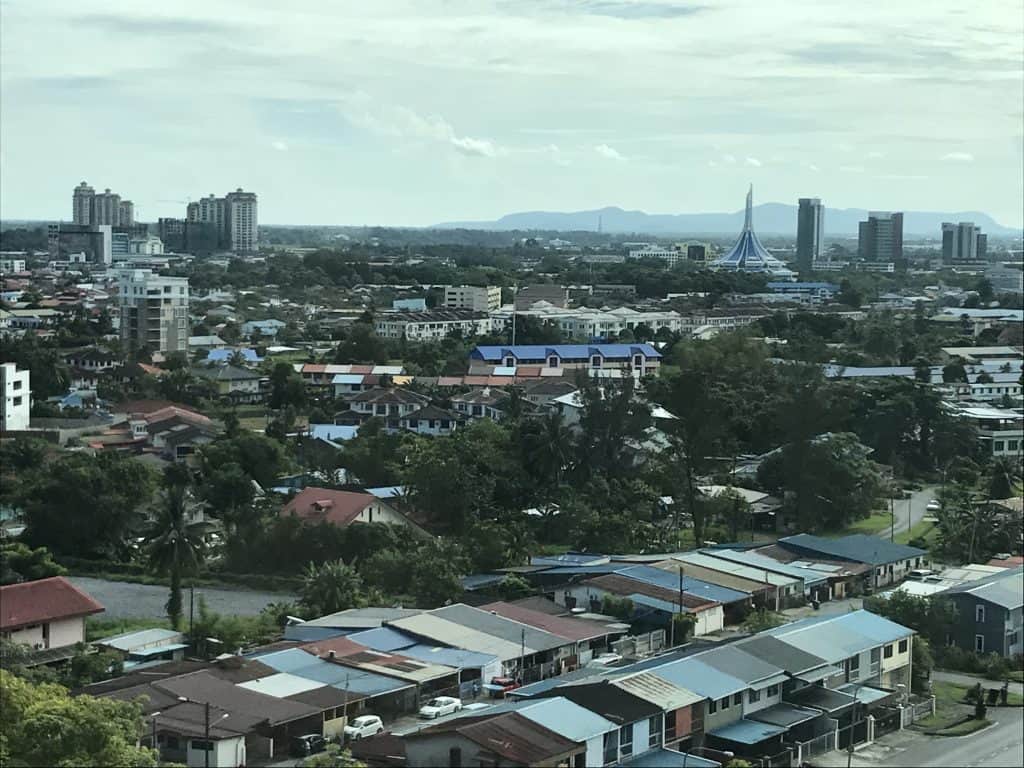
Cultural Significance and Modern Celebrations
Gawai Dayak is more than just a festival; it’s a rich tapestry of cultural heritage and modern-day revelry.
It celebrates the end of the rice harvesting season and brings together diverse ethnic groups in the Malaysian state of Sarawak.
Preserving Gawai Traditions
The word Gawai means “ritual” or “festival” in the Iban language.
Historically, Gawai Dayak signifies the end of the rice harvest and is a time for giving thanks.
Traditional rituals are performed in thankfulness for a productive harvest.
Christian Dayaks have also incorporated religious elements into the celebrations, attending church services.
The dayak people of Sarawak take great pride in observing these age-old customs within their traditional longhouses.
There, you can experience unique cultural activities like traditional music and dances.
This cultural preservation ensures that Dayak heritage thrives, even in the coming years.
Gawai in Contemporary Society
In modern times, Gawai has extended beyond rural longhouses to urban areas. It is now a public holiday celebrated widely in Sarawak.
Social gatherings such as open houses are common, where visitors are welcomed with traditional delicacies and rice wine, called tuak.
Community centers often host large events, making it a communal affair.
The festival starts on June 1st and sometimes spills over into the following days, embodying the essence of togetherness.
Elaborate festivities include beauty pageants, showcasing the traditional attire and native ethnic groups of Sarawak.
Over the years, the Gawai Festival has evolved, but it remains a potent symbol of unity and cultural pride.
My Gawai (Twice!)
I’ve been fortunate enough to experience Gawai twice, in 2005 and 2017! It’s really one of the best times to visit Sarawak!
The Food
My favorite part of Gawai is visiting at the homes of the Dayaks and partaking of all the delicious traditional food on offer. Glutinous rice flour is used to make many of the dishes.
The key is to pace yourself.
At the first house, even though you might be super hungry & want to eat everything, DON’T!
You will regret it at the 2nd & 3rd houses, because you are expected to eat at each place.
We went to 3 amazing open houses. Some English was spoken at each one, and each experience was very relational.
A welcome drink is often offered to you. It is usually tuak, a rice wine. Toast to “long life!”
“Selamat Gawai” or “Selamat Hari Gawai” may also replace your normal morning greeting of “selamat pagi!”
Here was our Gawai food experience in 2017!
Gawai Dayak Meal #1
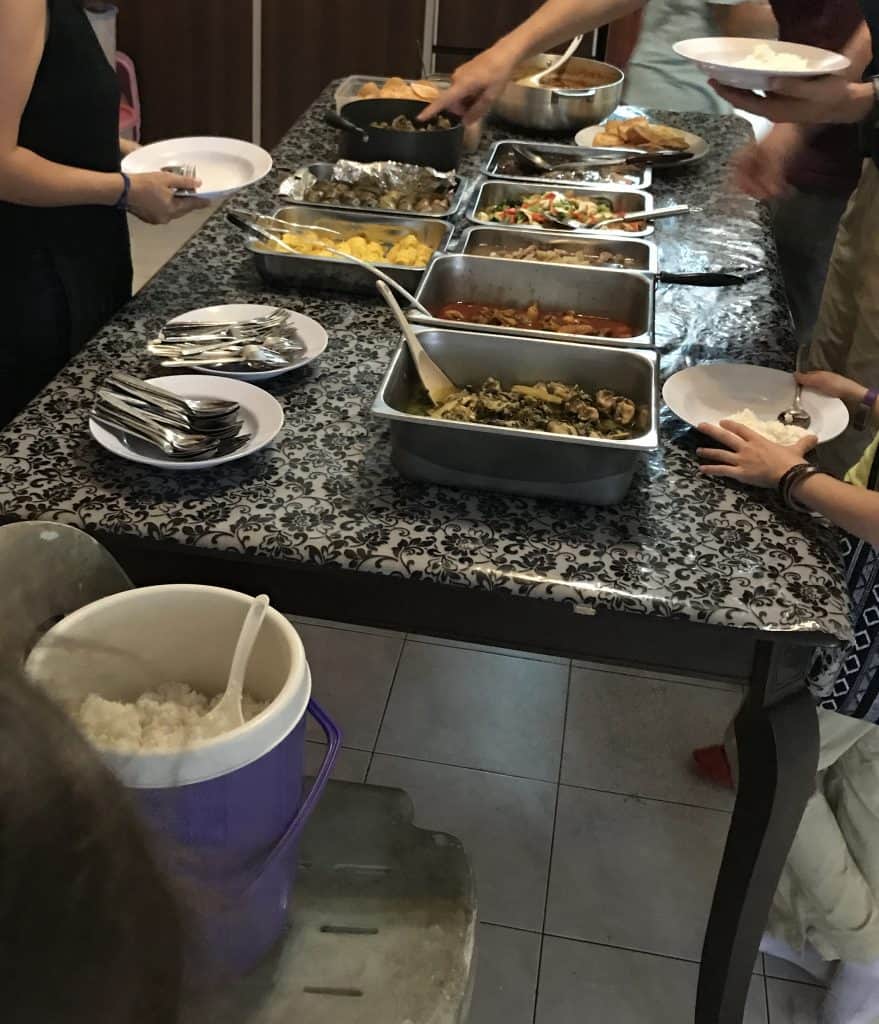
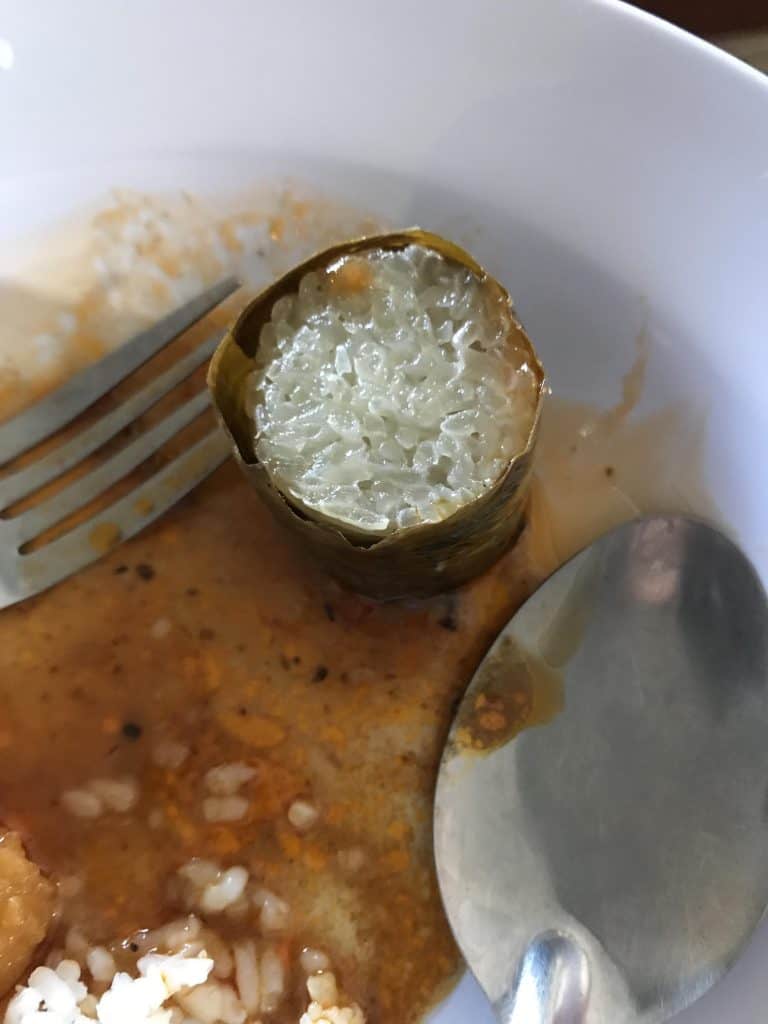
Gawai Dayak Meal #2

These traditional cakes are fantastic. How do they make those?!?!?
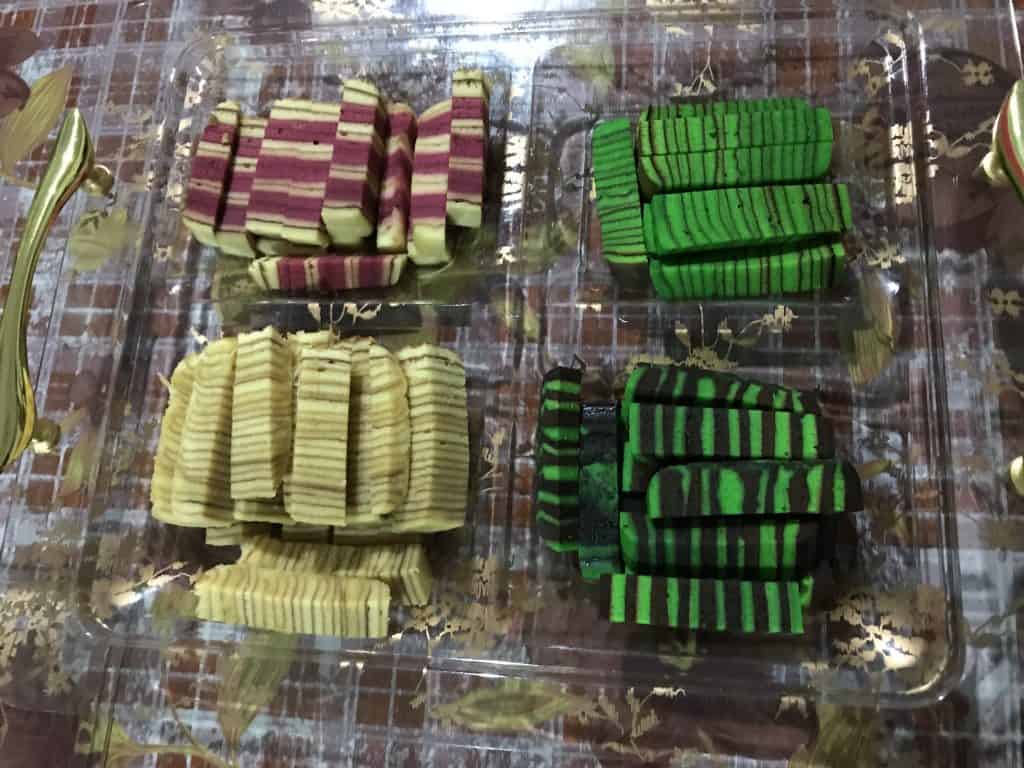
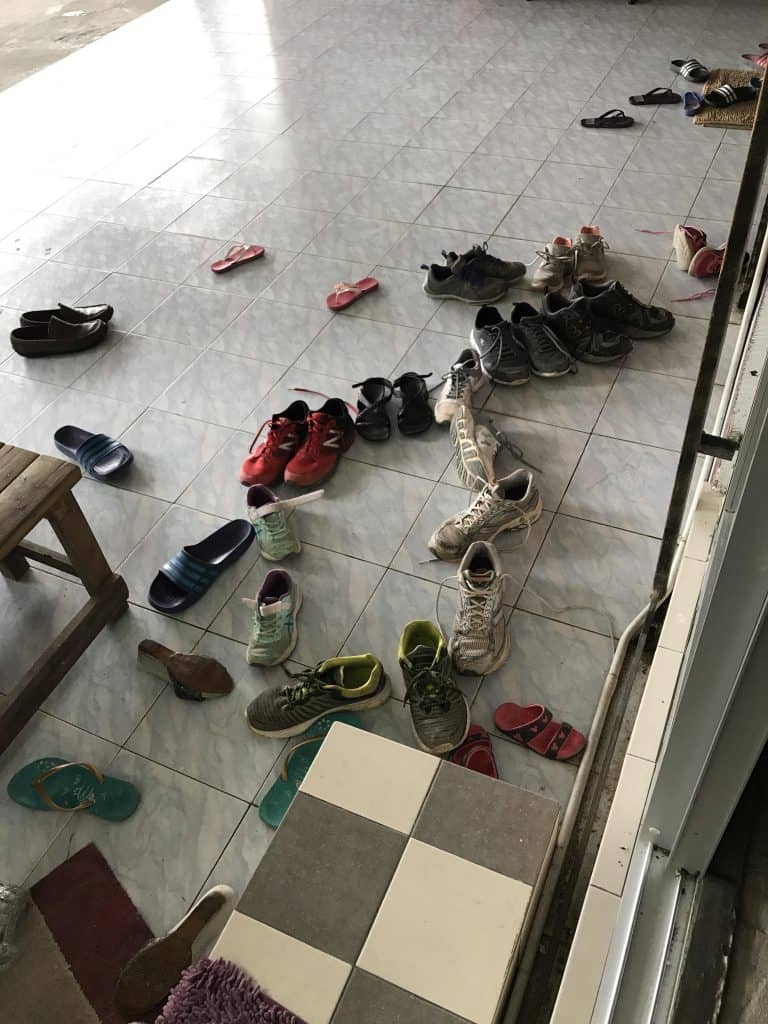
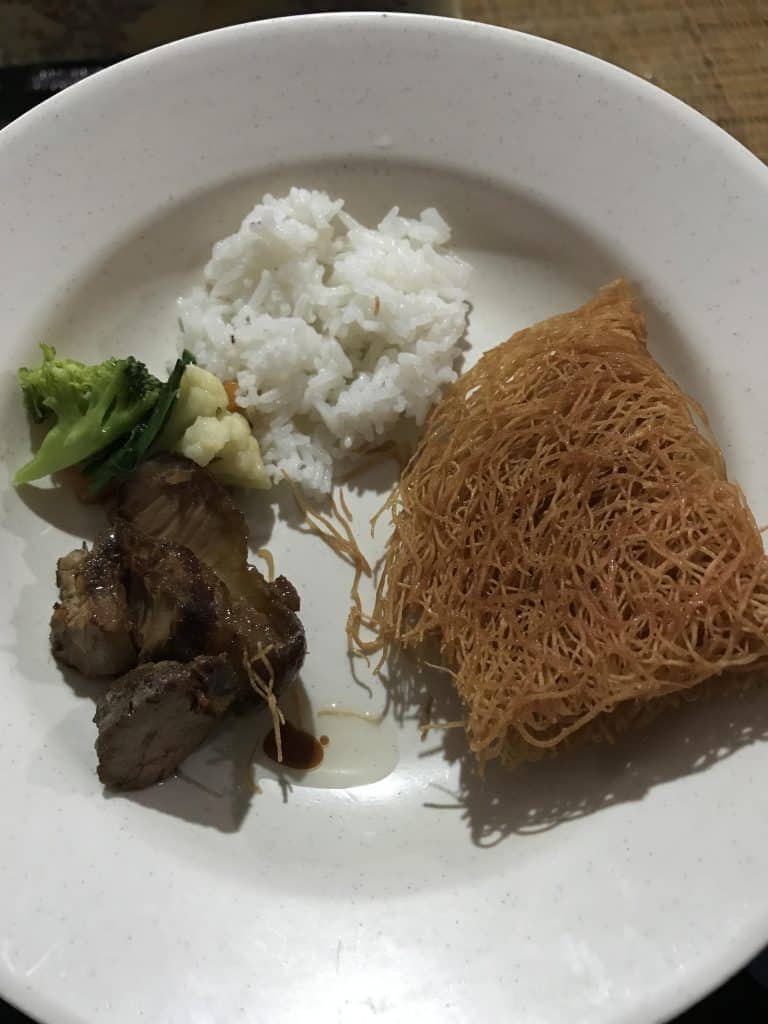
Gawai Dayak Meal #3
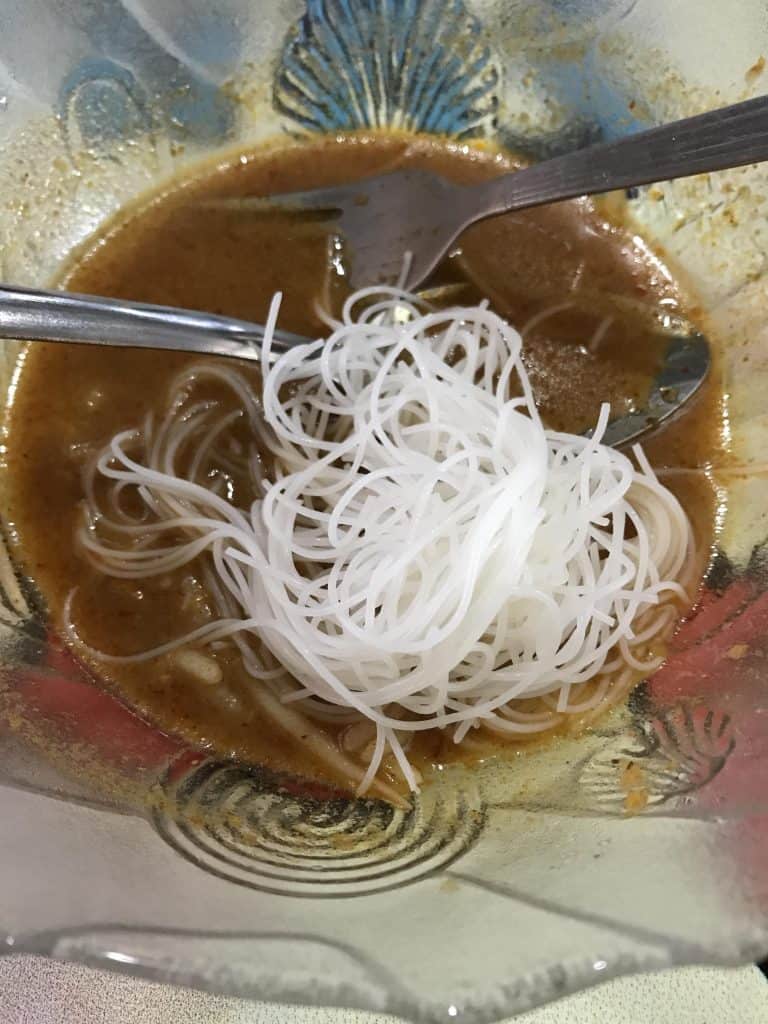
The Kampung Meeting
There is often no need to eat dinner, as you will essentially have several lunches.
After leaving the 3rd house, we drove to a Bidayuh community village (kampung) & watched Bidayuh children & young women compete in a beauty pageant to see whose Bidayuh traditional dress outfits were the best.
The meeting took place in the kampung’s “head house,” which (in the past) was used to display their headhunting skulls!
When we went into the meeting, it was raining lightly.
When we left, it was a torrential downpour. Our rain jackets came in very handy.
What would you expect when the weather that particular day was Max Temp = 91°F / Average Humidity = 85%!
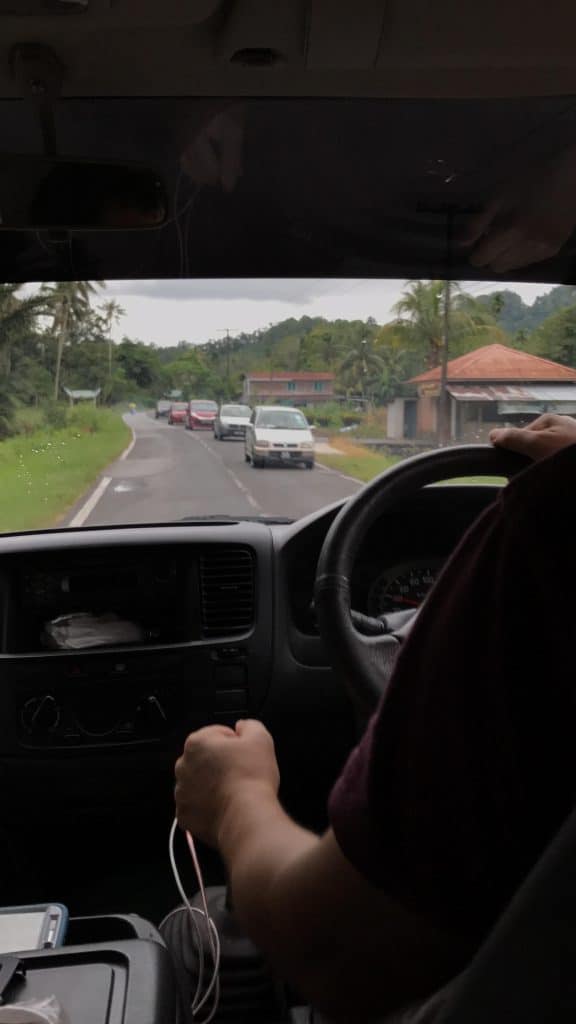

Getting to Gawai
Getting to Gawai is an adventure in itself!
If you’re traveling from outside Sarawak, you’ll likely fly into Kuching International Airport.
From there, you’ll need to take a road trip to the longhouses, which can be found in remote areas.
Renting a car or hiring a local driver is highly recommended, as the journey can be tricky with winding roads and occasional bumpy paths.
Don’t forget to pack your spirit of adventure, as you’ll be immersed in the lush, green beauty of Borneo’s rainforest along the way.
Once you arrive, you’ll be welcomed with open arms into a celebration you’ll never forget!
Frequently Asked Questions
Gawai is a time of celebration, unity, and thanksgiving for the Dayak people of Sarawak, Malaysia. It’s marked by traditional dances, delicious food, and heartfelt well-wishes.
What Does Gawai Dayak Mean?
Gawai means “festival,” and Dayak is the collective name for all the indigenous peoples of the area.
The Dayak peoples (native people of Borneo) include (but are not limited to) Bidayuh, Iban, Penan, and Orang Ulu.
In other words, it’s the festival of the Dayak people!
Many Dayak peoples also live in West Kalimantan, which is south of Sarawak, and is part of Indonesia.
Why do people celebrate Gawai?
Gawai is a thanksgiving and harvest festival celebrated by the Dayak people.
It marks the end of the rice harvest and is a time for giving thanks and planning for the future.
This joyful festival also symbolizes unity among the Dayak communities.
When is Gawai?
Gawai is officially an annual festival on June 1, but the Gawai celebrations can start a week ahead of time and continue on past the first of June.
Gawai Eve, the evening of May 31st, is often when many large party gatherings are held. Then, the next day, on June 1, people return to their homes for welcoming visitors.
How is Gawai Celebrated?
The Gawai festival is celebrated in many different ways, including cultural activities, dayak traditions, beauty pageants, parades, and fireworks.
Family members who have moved away often return home for the celebrations.
What foods are a must-try during the Gawai festival?
During Gawai, you simply must try tuak, a traditional rice wine brewed at least a month in advance.
Another treat is manok pansoh, chicken cooked in bamboo.
Don’t miss out on the delicious lemang, sticky rice cooked in bamboo with coconut milk.
What is the significance of Gawai for the Dayak community?
Gawai holds great significance as it’s both a religious and social event.
It’s a time when families get together, visit friends, and celebrate their cultural heritage.
The festival strengthens community bonds and keeps traditional practices alive through dances, songs, and rituals.
SBT Summary: Gawai
Gawai Dayak is a harvest festival that was originated from the Malaysian state of Sarawak, which is on the island of Borneo.
It celebrates the bountiful rice harvest season and thanksgiving for a successful year.
The celebration in Borneo differs from region to region but typically includes traditional ngajat dance, singing, and music, with songs in praise of God, as well as food offerings to thank Him for blessing them with sustenance.
So, technically, it is a thanksgiving day marking a bountiful harvest.
Practically, it means you drive around to multiple houses, visit, and get fed a full meal at each place! Good harvest, indeed!
It’s a time for friends and family to come together, share food and dance, play traditional music, or simply relax under the stars. It’s also a time when you’re likely to see some of the most spectacular fireworks displays you’ve ever seen!
Remember, Gawai Dayak isn’t just a holiday; it’s a beautiful blend of culture, heritage, and community spirit.
If you ever find yourself in Sarawak in late May and early June, don’t miss this extraordinary celebration!
ENJOYED THIS POST? PIN IT FOR LATER!
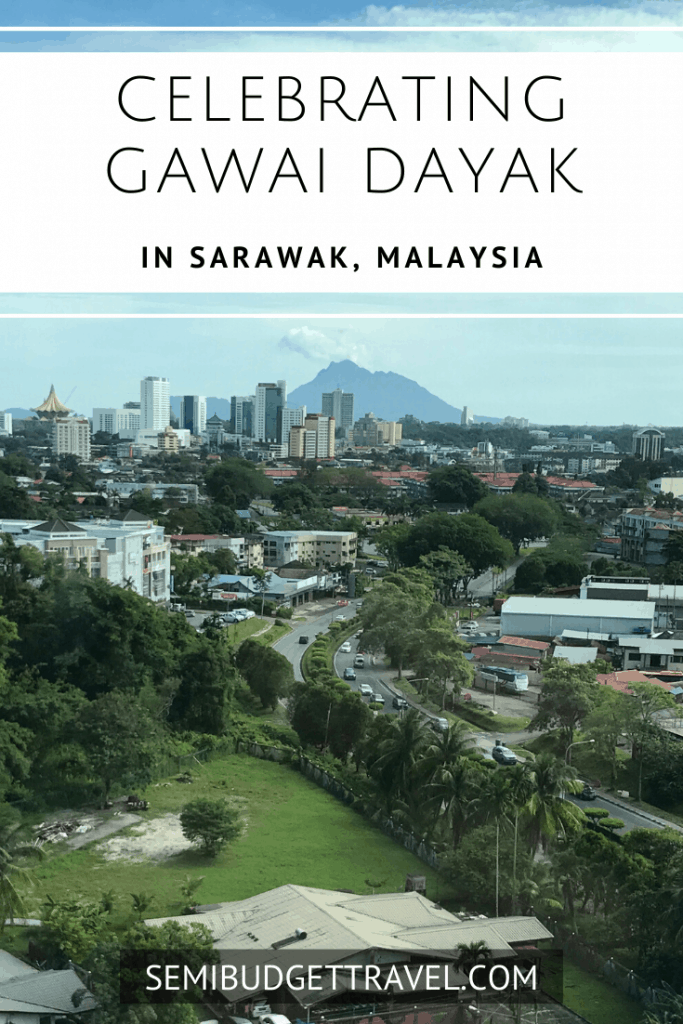
➡️ SUBSCRIBE ⬅️
OG: 06012017
STARTS WITH
A GREAT BUDGET!

ALL GREAT SEMI-BUDGET TRAVEL
It's easy! I will show you how with a FREE trip planning tool.

